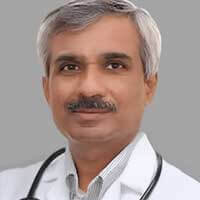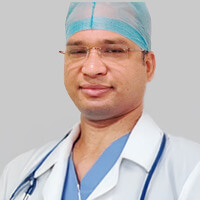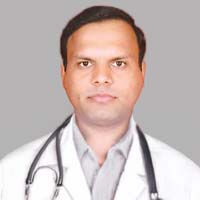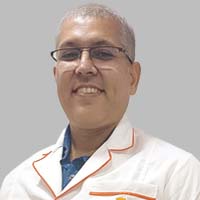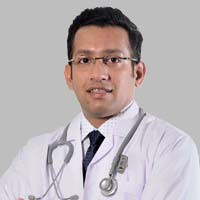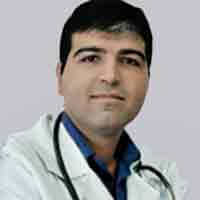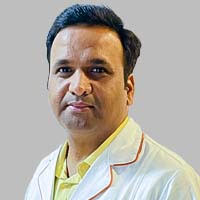Why is Partial Knee Replacement Surgery Required?
Partial knee replacement surgery will be recommended by your orthopedist in case if you have developed inflammatory arthritis or high level of knee stiffness or severe ligament injury. Other factors that also decide whether partial knee arthroplasty is required are:
- Intense knee pain which does not allow you to sleep well at night
- Your daily activities (even walking, standing for some time, and simply moving around the house, which makes you uncomfortable) are hampered because of knee pain
- Other orthopedic treatments have failed to deliver good results
If you have arthritis (inflammation of the joint that causes immense pain and stiffness) only on one side of the knee and you have a good motion range of knee joint and stable knee ligaments, then partial knee replacement surgery will be more effective than total knee replacement surgery.
Pre-operative Preparation
There are certain things like the medications that you have taken sans a doctor's prescription, substances you are allergic to and current medication and drugs you are intaking, that you need to let your doctor know. Below mentioned are few points that have to be kept in mind during the pre-operative preparation phase:
- Ask your orthopedist about the medications that you can take; even on the day of surgery. Your doctor will let you know which medications have to be discontinued.
- If you are a diabetic patient or heart disorder patient or you have suffered any major illness, you need to tell your doctor about it.
- Smoking should strictly be stopped as it affects rate of recovery and will delay healing procedure.
- You should also inform your doctor if you consume excess alcohol; say around more than one or two drinks a day.
- If you develop flu, cold, herpes or any other disease before the surgery, let your orthopedist know about it.
- Prepare your home in such a way that it becomes spacious. It will be comfortable for you to walk around. Practice walking with walking aides like canes, wheelchair, crutches and walker. It will make your post recovery process comparatively easier.
Day Before Surgery
Day before the surgery, vitals like blood pressure, pulse rate, body temperature etc. are all checked. Blood test may also be conducted to check for presence of infection and blood count. If your blood count is less, you may need to arrange for blood transfusion so as to compensate for blood loss that will happen during partial knee replacement surgery procedure.
Procedure Day
On the procedure day,
- You are not supposed to eat or drink anything for at least 6 hours prior to the surgery. Your doctor will let you know the precise duration of fasting.
- You need to take the medications that have been told by your orthopedist.
- You need to arrive at the hospital at the exact given time.
Methods/Techniques of Partial Knee Replacement Surgery
Partial knee replacement is an inpatient procedure which implies that patient has to stay in the hospital for few days after the surgery is performed. General anesthesia will be administered by the anesthesiologist to make the patient numb and unconscious during the surgical period. Throughout the surgical period, patient is closely monitored to minimalize risks and complication
Method of partial knee replacement surgery is mentioned below:
- Your orthopedic surgeon will first inspect your knee joint properly and make an incision in the front part of the joint. Through this incision, surgeon is able to assess all the three compartments of the knee joint and approach affected compartment where damage has occurred.
- With the help of special saws, damaged cartilage and part of bone is removed from the respective compartment of the knee joint. This removed part is then substituted by metal coverings to recreate surface of the joint.
- To hold these metal parts or prosthetic implants in place, they are held to the bone with cement.
- To avoid friction and create smooth gliding surface which is generally the function of cartilages, a plastic insert is placed in between two metal components.
- The skin and wound is then closed with stitches.
Post partial knee replacement surgery, patient will be taken to the recovery room where he/she will be closely monitored by panel of orthopedics and nurses.
Post Procedure
Patient needs to stay in the hospital for a day or two post partial knee replacement surgery. Though your stay in the hospital will be monitored by nurses, you need to take care of yourself once you have been given discharge. The list of dos and don't s have been mentioned below that will help you in speedy recovery post surgery.
- Follow-up appointments:
Follow-up appointments need to be strictly adhered to. These appointments help the orthopedist in analyzing the outcome of the surgical procedure and find faults if they have been made during the surgical procedure. Also, follow-up appointments help the patient understand how well he has recovered and at what rate. Your orthopedist will give you some tips that will help you to recover sooner.
- Moving around:
It's understandable that in the initial days post surgery, it will be difficult and uncomfortable for you to move around. But, do put in some effort to do minimal exercises like slow walking for few minutes in a day. You can take help of a cane or walker etc. to help you walk. Generally, after a month or so, patient is able to walk sans any aid. Gradually, you can increase your endurance and you can opt for more vigorous exercises, such as fast walking, swimming, biking, golf, tennis etc. Exercising will help in strengthening muscles around the knees and also increase range of motion. However, make sure that you exert less strain or pressure over the knee that has been operated. Before staring any exercise schedule, better consult your orthopedist.
- Seek help of physiotherapist:
Patient can seek help of a physiotherapist to recover early. Physiotherapist will help you with exercises that help to increase mobility of knee joint, simultaneously relieving knee joint pain. With proper guidance and support of your physiotherapist, you can recover soon. Your therapist will not only help in increasing your will power to heal and recover but also will offer you support and push you through this difficult phase.
- Diet:
You just cannot underestimate the importance of diet during recovery phase. Since, you have undergone an intense surgical procedure, you need to intake lots of proteins to make up for lost muscles and consume calcium rich diet to make your bones strong. Proteins are building blocks of body and help in formation of tissues and muscles. Without proteins, your body cannot make tissues that will eventually hamper your speed of recovery. Good sources of protein include eggs, chicken, lentils, dals, etc. Proteins obtained from animal sources make up for complete cycle of amino acids while those derived from plants make for incomplete amino acids.
Calcium is another mineral that is important for building strong bones. When accompanied with vitamin D, our body is able to absorb calcium better. Sunlight is the richest source of Vitamin D. Exposure to optimum sunlight helps in converting the inactive form of Vitamin D into an active form. Calcium rich sources comprise yogurt, milk, kale, sardines, watercress, cheese, broccoli etc.
Make sure you drink enough water to keep your body hydrated and flush toxins out from your body.
Risks and Complications
Every surgery comes along with certain risks and complications that cannot be completely eliminated. However, complications can be reduced. Utmost care is taken at the time of surgery to reduce risks and complications. Let us have a look at common risks and complications that might take place during knee replacement surgery:
- Blood clots:
Blood clots occurring in the veins of legs or pelvis are common complications of knee replacement surgery. To solve this problem, blood thinners will be prescribed by the orthopedist.
- Infection:
Infection may occur in the operated area. To combat infection, antibiotics will be given prior to the surgery and also after the surgery.
- Injury to surrounding healthy tissues:
During partial knee replacement surgery, while fitting prosthetic implant or during wear and tear of tissues, injury might occur to surrounding healthy ligaments and cartilages of knee joint. It is a very rare phenomenon that nerves and blood vessels are completely damaged.
- Pain:
Patient may experience pain in the operated region for few days post surgery. You should consult with your orthopedist before consuming pain killers.
- Anesthetic issues:
One generally feels uncomfortable and lethargic for few hours till the effect of anesthesia completely fades away.
- Need for another surgery:
If anything goes wrong; which happens in very rare cases, another knee surgery may be required to fix the fault.
To conclude, partial knee replacement surgery is a boon for all those patients whose only a part of the knee joint has been affected. These patients can now enjoy the benefits of walking and doing other rigorous activities without worrying about pain in the knee joint post surgery.
More information related to Knee Treatment
- Information on Total Knee Replacement Surgery
- Information on Knee Arthroplasty
- Information on Knee Osteotomy
Cost of Knee Replacement Surgery in India and top cities
List of best Knee Replacement Surgeons in India and top cities
List of best Orthopedic Hospitals in India and top cities

























